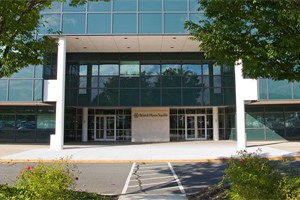
The combination of Bristol-Myers Squibb’s two cancer immunotherapy drugs Opdivo and Yervoy is safe and effective in non-small cell lung cancer (NSCLC), according to a new study.
The results of the CheckMate-012 trial reinforce an earlier study of PD-1 inhibitor Opdivo (nivolumab) and anti-CTLA4 antibody Yervoy (ipilimumab) in melanoma, which also showed a clear benefit from combining the two drugs. That regimen is currently under review by the US FDA.
The new data lends weight to the idea that the new immuno-oncology agents – which remove blocks on the immune system that help cancer cells evade detection – work well together.
In the latest phase Ib dose-ranging study, the combination achieved response rates of between 13% and 39% with an “acceptable tolerability profile”, according to BMS, suggesting the two drugs could be a chemotherapy-free option for NSCLC patients starting treatment.
The median duration of response has not been reached in any of these arms with a median follow-up of 6.2 months to 16.6 months, and median progression-free survival (PFS) ranged from 4.9 months to 10.6 months, the company said.
The range of doses tested included some which seemed to exhibit less toxicity than has previously been seen in combination Opdivo/Yervoy trials, with 3% to 10% of patients overall suffering side effects that required them to stop treatment.
Interestingly, the two drugs showed efficacy regardless of whether the patients’ tumours were expressed PD-L1, the protein that binds to the PD-1 receptor, according to lead investigator Naiyer Rizvi of Columbia University in New York. However, the regimen seemed to be more effective in PD-L1-positive patients.
The results “show the potential of dual immune checkpoint blockade” in NSCLC and warrants further investigation, said Rizvi.
That view was echoed by BMS’ head of oncology Michael Giordano, who noted that while immuno-oncology drugs have shown real advances in second line NSCLC, “an unmet need remains for first-line treatments that offer durable, long-term survival and greater tolerability.”
Opdivo is already approved to treat squamous NSCLC in addition to its first indication in melanoma, and BMS filed to extends it use to include second-line treatment of non-squamous NSCLC last week. Yervoy is approved for melanoma but not yet for lung cancer.
Opdivo brought in sales of $162m in the first half of the year across all its indications, while Yervoy added $621m, up around 5% on the prior year. Approval of the combination would be a boost to both drugs, although their high cost could be an obstacle to use.
Forecasts for Opdivo’s peak sales range between $5bn to $7.3bn, and analysts expect the immuno-oncology drugs as a whole to bring in tens of billions of dollars in peak revenues.




